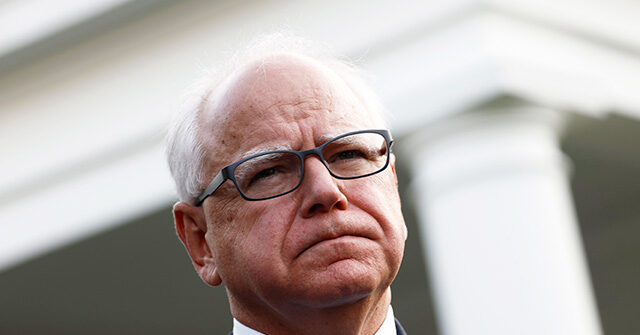Recent reports have surfaced alleging that Minnesota Governor Tim Walz (D) had a secret romantic relationship with Jenna Wang, daughter of a prominent Chinese Communist Party (CCP) official, Bin Hui. Wang, who was an educated English language teacher, described their relationship as secretive and filled with restrictions, stating they weren’t allowed to show affection in public. Their connection reportedly blossomed when Wang attended one of Walz’s lectures in Foshan, China, where he openly complimented her beauty. This initial attraction soon seemed to evolve into a significant relationship.
Despite their purported love, their relationship faced challenges. Wang expressed a desire to marry Walz and establish a family, but tensions escalated when Walz allegedly accused her of being interested in a U.S. passport more than their relationship. This accusation seemed to stem from insecurities that emerged later in their relationship, particularly after an incident where he insisted she sleep in his cabin during a train journey. Such moments of frustration and misunderstandings reportedly drove a wedge between them, highlighting the complexities of their liaison.
Wang articulated feelings of abandonment and disappointment, describing Walz’s behavior as “selfish” when their dreams of a future together didn’t materialize. Her dissatisfaction grew as she believed Walz’s character was questionable based on opinions he expressed on sensitive topics like the Tiananmen Square massacre, a significant incident in Chinese history. This disappointment reflected deeper concerns about Walz’s integrity, given his previously made contradictory statements about his whereabouts during critical historical events.
The relationship reportedly began to decline significantly after Walz returned to the U.S. during the summer and subsequently returned to China in 1992, with Wang leaving her teaching post embodying hopes for a future with him. However, upon his return, rather than rekindling their bond, tensions escalated further, culminating in a heated exchange concerning her motivations. This led Wang to decide to leave their arrangement and help her mother instead, showcasing how external pressures and internal misunderstandings played a pivotal role in their breakup.
Critically, Walz’s history with the Tiananmen Square incident has come under scrutiny, with accusations emerging that he misrepresented his presence during the events of 1989. A 2014 claim suggested he was in Hong Kong during the massacre, but reports have since confirmed he was actually in Nebraska. Such discrepancies have raised questions about his credibility and have provoked criticism, particularly during debates where he admitted to making youthful mistakes that have led to confusion over his past.
Overall, the alleged relationship between Walz and Wang encapsulates the challenges posed by cross-cultural interactions and the myriad complexities of personal relationships amplified by political contexts. Wang’s assertions about wanting to marry Walz and his subsequent accusations illustrate the intricate dynamics at play, while the unfolding revelations regarding Walz’s claims about his past highlight the intricate intertwining of personal and political narratives, potentially impacting his governance and public image as a leader.

